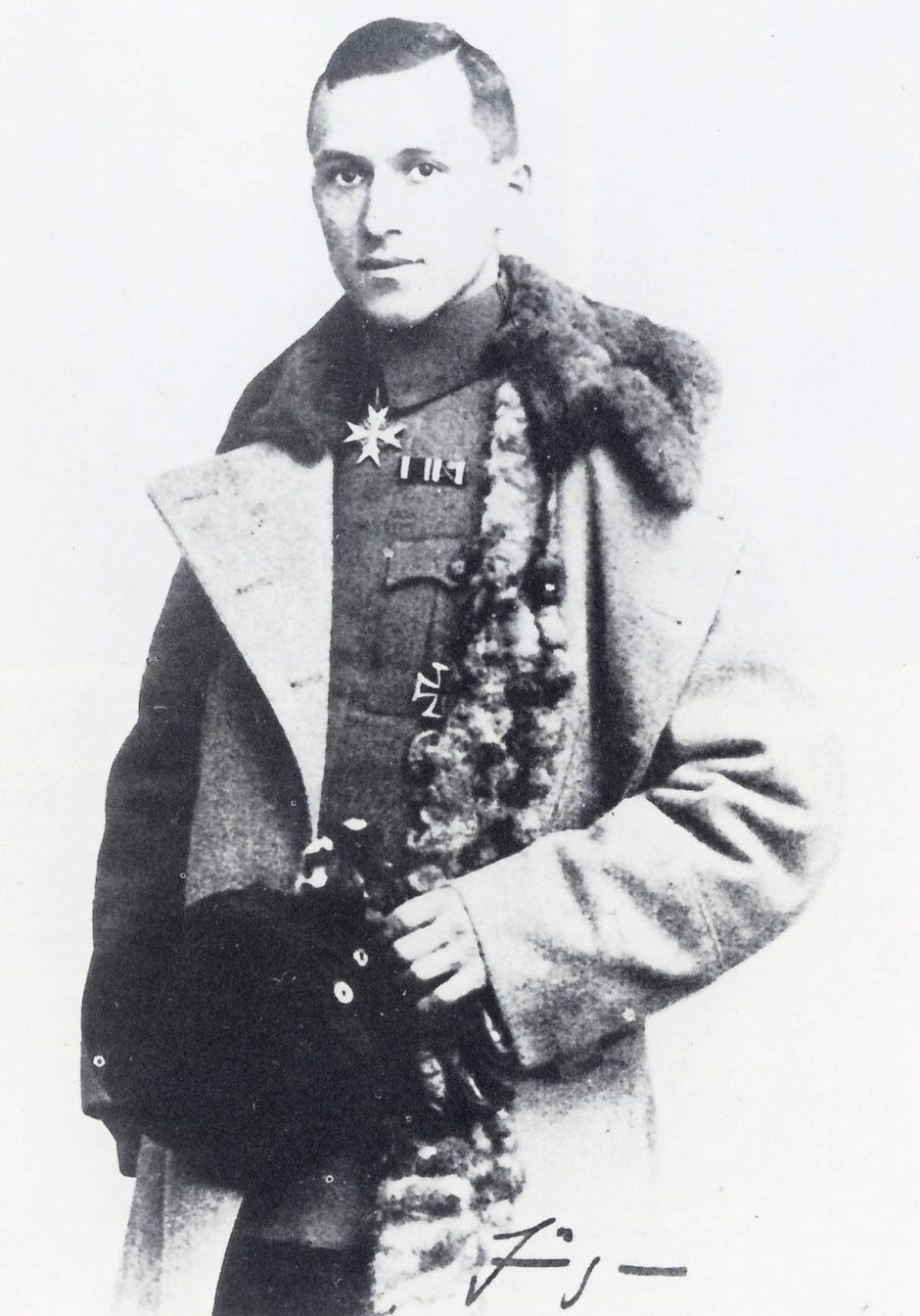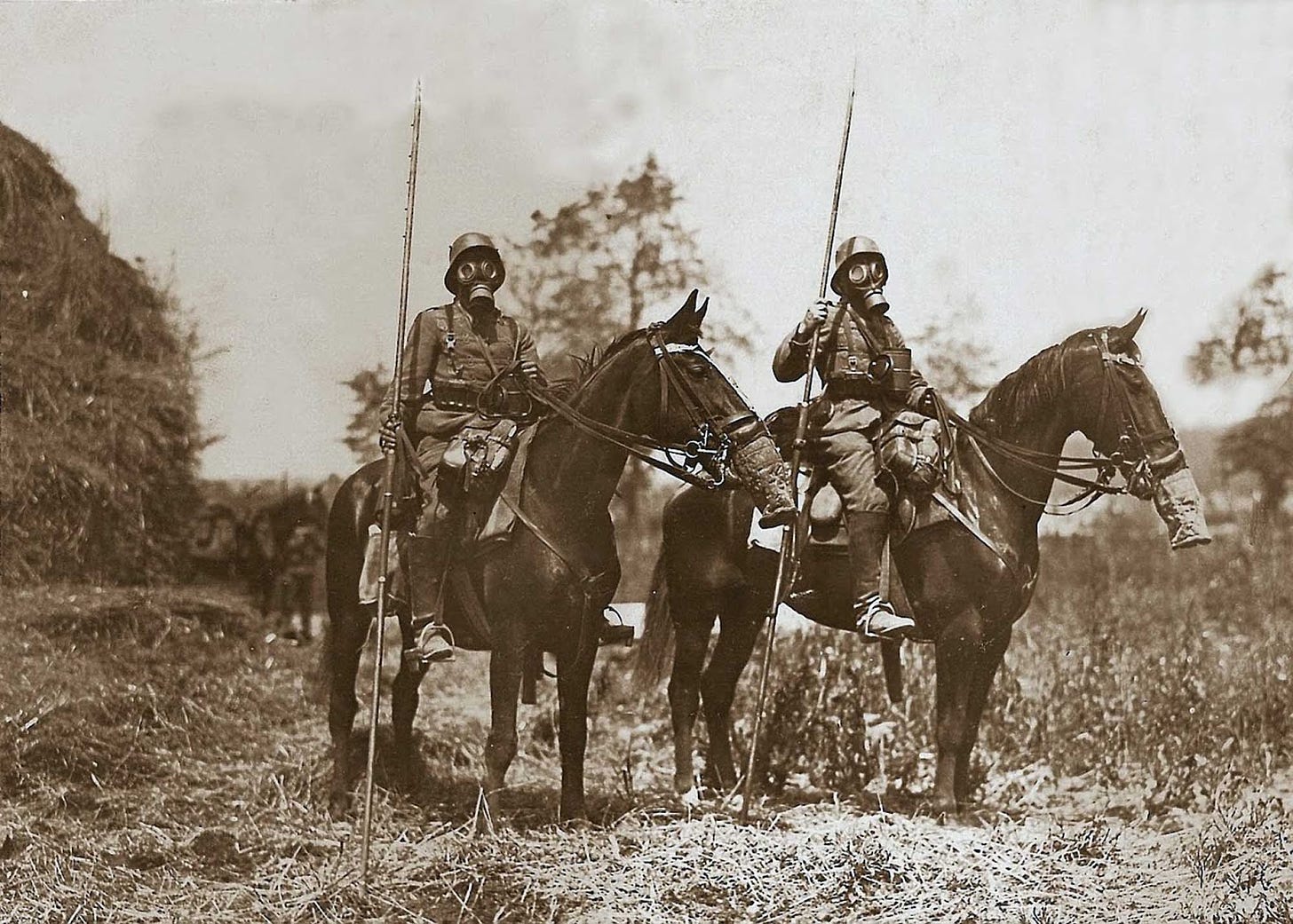“Above all— what was his attitude toward man, without whom all his work was meaningless? It originated in man and must return to him. A rose or a vine may be conceived without a trellis, but never the other way round. Did he want to dominate man, to paralyze him, or to lead him into fabulous realms? Was automation, in his eyes, an enormous experiment, a test to be passed, a question to be answered? I thought him capable of theoretical, even theological reflections; I had seen his library and had looked into his eyes.”1
In my World of Glass Bees essay I framed our life in postmodernity as a kind of confrontation with constructed reality. Using the position of the main protagonist, Captain Richards, I explored the psycho-social grounding of his decision to personal rebellion against the total regime of technological world-building that surrounded him. His analogy was a near perfect one, though I was left with the sense that I had not done the book justice. As one of Jünger's lesser known works, but my personal favorite, I thought “The Glass Bees” deserved a deeper dive than it received as a mere capstone to a discussion of narrative.
In my estimation, “The Glass Bees” also comprises the most politically reactionary of Jünger’s post-war works, and certainly of his novels. In it, Jünger richly engages with a central theme of his writing that would form a prime aspect of his vision in his later “Eumeswil;” the concept of the man outside of time, or man of a bygone age. Unlike in “Eumeswil,” however, where Martin Venator feels merely alienated by what he considers a post-value, unserious society, and where he considers men like his father to be hangers-on to a bygone era, in “The Glass Bees,” our Captain Richards sees himself as a living remnant, however undeserving, of that former era.
Chapters 1-7
I was still one mass of useless and antiquated prejudices. Since everything was now supposed to be based on contract— which was founded neither upon oath nor atonement nor Man— trust and faith no longer existed. Discipline had vanished from the world. It had been replaced by the catastrophe. We were living in permanent unrest, and no one could trust anyone else. Was it my responsibility?2
Richards is, importantly, a beaten-down man. His virtues are precisely those things which draw him ire and suspicion for they are martial and aristocratic virtues, commitment to a world of form and duty which he went to battle for, and his self-deprecation is often a confrontation with his inability to assimilate into the new world of passive consumption and mere rent seeking.
“On top of everything, I felt ridiculous— I sensed that I was being old-fashioned, one of those people who still wasted their time with scruples, while all the others, who pocketed whatever profit was offered, looked down on me… [Why] should words like ‘government’ still be taken seriously? Did those figureheads have a monopoly, perhaps, on being serious? Were they an exception to the devaluation of words? Was there, in fact, a person still alive who could teach others the meaning of decency?”3
Throughout the novel, what Richards succeeds in cutting into the heart of is that what he is alienated by, precisely, is a replacement of the real world with a manufactured one. What alienates him is what alienates everyone— his past, creating his inability to cope, merely makes him a living image of what was lost. There’s no coincidence then that Captain Richards is a cavalry officer. In many ways he and his way of life are just like the horse.
Today these magnificent creatures [the horse] were doomed. They had disappeared from the fields and from the streets, from the villages and towns, and for years they had not been seen in combat. Everywhere they had been replaced by automatons. Corresponding to this change was a change in men; they had become more mechanical, more calculable, and often you hardly felt that you were among human beings. Only at rare moments did I still hear a sound from the past— the sound of bugles at sunrise and the neighing of horses, which made our hearts tremble. All that has gone.”4
In Richard’s perspective, there are two kinds of life for men: there is a spirited life— embodied, vital, real — and there is a widget-man’s life, constructed and compartmental. If Richards understands himself and his existence as contending against replacement by automata and robotism (the position of the postmodern man), he can understand it only because he was witness to the lost battle of the modern man, subsumed by machine power. For Richards, his confrontation with the longhoused reality of modern man comes in the form of one of his past mentors, a once great horseman by the name of Wittgrewe. Richards recognizes him as the conductor of a streetcar saying, “the sight upset me; I felt distressed, as if a free-roaming animal had been imprisoned in a cage and taught a few pitiful tricks. So this was the splendid Wittgrewe.”5 Following their encounter, Richards joined Wittgrewe in his city apartment. Joined as they drank by Wittgrewe’s silent, diminutive wife, Richards was struck by the utter lack of reference to their shared past. But this deflated, defeated Wittgrewe was not an image of one man but of a class of men.
“When we had been stationed in the Eastern Provinces, only young recruits from the villages joined us, sons of peasants and farmhands… The years in the cavalry were a treat for them. Later, more and more were absorbed by the big cities and ended up like Wittgrewe. They were hired to do piecework, which was beneath a man’s dignity. It could have been done just as well by a woman or a child, or even by a part of the machinery at which they worked.
What they had done in their youth, and what for millenniums had been man’s vocation, joy, and pleasure— to ride a horse, to plow in the morning the steaming field, to walk behind the oxen, to mow the yellow grain in the blazing summer heat while streams of sweat poured down the tanned body and the women who bound the sheaves could hardly keep in step with the mowers, to rest at noon for a meal in the shade of green trees— all this, praised by the poets since times immemorial, was now past and gone. Joy in labor had disappeared.
How can one explain this trend towards a more colorless and shallow life? Well, the work was easier, if less healthy, and it brought in more money, more leisure, and perhaps more entertainment. A day in the country is long and hard. And yet the fruits of their present life were worthless compared to a single coin of their former life: a rest in the evening and a rural festivity. That they no longer knew the old kind of happiness was obvious from the discontentment which spread over their features. Soon dissatisfaction, prevailing over all their other moods, became their religion. Where the sirens screamed, it was horrible. And soon there was hardly a corner left where the sirens could not be heard.”6
Jünger speaks here to a deep demoralization of the human spirit, the crisis of meaning and of color, as he puts it, which have been stripped away from man through the construction of an ever-more dense and ever-more sophisticated apparatus that surrounds his every move. The memetic of the bugman, the pod-liver, and the wage-cuck all come out of this feeling of containment and physical oppression in space. To be unseen, to be unsupervised, unmanaged is gone now. To be more than a tool but a source is gone now too. Jünger saw, too, who was lost most of all. A strong man like Richards could keep wading. A lucky woman like his wife, Theresa, who put her whole heart to loving him, could keep in her eye the image of the hero. But, the children knew not of what was lost.
“They had been born into an atmosphere of insecurity and had never known men with the absolute assurance of a Monteron [Richards’ mentor]. I could, therefore, realize better than they the measure of their threatened situation, their loneliness in the uncharted seas; their dreadful position on the brink of nothingness.”7
Like always, I am struck by the clarity with which Jünger saw the future. Even in 1957 when nanobots, AI, and the smartphone were yet so far away, Jünger saw so clearly the trajectory of deracination that modern man was living through, and the crippling loneliness of future young people, taken away from all space and time into the ever hyper-driven moment. And so did he, with that same clarity, predict their reactions. With a jarring prescience, he discussed the rise of artificial obsessions among young people, so perfectly capturing in his descriptions, the sickness of para-relationships we now see of young people and Anime and Otaku.
“The figures, it is true, still differed slightly from the human actors we are used to seeing, but they differed pleasantly; the faces were more brilliant, more flawless; the eyes of a larger cut, like precious stones; the movements slower, more elegant, and in moments of excitement even more violent and sudden than anything in our experience…. Thus one might say that these figures did not simply imitate the human form but carried it beyond its possibilities and dimensions….
The newspapers deplored the fate of a young man who had jumped into the Thames: he had taken Zapparoni’s leading puppet actress for a woman of flesh and blood and could not get over his disappointment. The management, expressing regrets, implied that it might not have been impossible for the fair robot maid to have responded to the young man’s courtship. He had acted too impulsively; he had not grasped the ultimate possibilities of technology.”8
The terror of this new regime comes to the fore when Richards is given the opportunity of a lifetime, to become the head of private security for his country’s most bizarre and eccentric tech-tycoon. Much of the book expounds on the tenseness of their interactions, of the intricate back and forth as they negotiate in spoken and unspoken terms, and on the reflections of the Captain before, during, and even after their meeting.
Chapters 7-24
If the first half of “The Glass Bees,” set out to discuss the situation of man-in-society during the rise of the automaton, then it is fitting to see the second half of the book as commentary on man’s personal confrontation with automatonism. This is embodied textually in “The Glass Bees” first by Captain Richards’ interview with Zapparoni himself, the cunning creator of his manufactured content-empire, and then second with his confrontation against the constructs themselves, the Glass Bees.
Zapparoni became the instantiation of a figure that Jünger outlined, that we now see commonly in our daily lives, but that outside of this novel I have never seen coined: the Power Saint. Jünger doesn’t use this term specifically but his discussion of Zapparoni cuts with this message:
“Why are those who have endangered and changed our lives in such terrifying and unpredictable ways not content with unleashing and controlling enormous forces and with enjoying their consequent fame, power, and wealth? Why must they want to be saints as well?”9
Again, Jünger’s almost clairvoyant vision cuts through from this fictionalized 1957 and captures the real men of this position in our time: Bill Gates, Jeff Bezos, Elon Musk, and Mark Zuckerberg. The image of the tech CEO exudes this level of hubris and ego. They terraform the world with their technological supra-structure, with no moment of thought given to the unintended consequences of this global meddling and turn around to lecture from their digital platforms all who have not taken up their pet social causes.
“Everything devised, constructed, and mass-produced at Zapparoni’s made life much easier. It was not considered good form to mention that these things were at the same time dangerous, but it was difficult to deny the danger… All his lilliputian robots and luxury automatons could contribute not only to the improvement but also to the shortening of life… By and large, the Zapparoni Works resembled a temple of Janus with one bright and one dark portal, and when clouds were gathering on the horizon, a stream of fiendishly devised, murderous tools began to pour forth from the dark gate. At the same time this dark gate was taboo; actually it should not have existed at all.”10
And is this not the same dissociative dissonance with which we approach our own tech magnates? They design and sell the apparatus of surveillance, tracking, missile guidance, drone operation and all the rest -- but we are shown only the storefront version of their true occupation. It is with this great irony that the technological Power Saints flatter themselves as sophisticated and superior above the old warrior or aristocrat.
“That Zapparoni should feel superior to a cavalryman and patronize him was as absurd as a shark passing judgement on his own teeth, which are, after all, its most efficient part. Horsemen have existed for thousands of years, and the world has continued to exist in spite of Ghengis Khan and other gentlemen who came and went like the tides. But when saints like Zapparoni began to appear, the earth itself was threatened. The peaceful stillness of the forests, the depth of the ocean, the outermost part of the earth’s atmosphere were in danger. Even in peace they had brought about greater evils than any tyrant or warlord had ever imposed; they prepared poisons which no one before had imagined or even known by name. Each day their machines took a toll equal to the casualty list of a single battle, and the yearly toll equaled that of a war— and in what a ghastly manner.”11
There is a tendency on the right to neglect this sort of sentiment, or worse to condemn it as being ‘of the left’, linked to environmentalism, the Green Grift, etc. but in so doing we are ignoring the elephant in the room.
The ultimate threat posed by global ‘development’ of this sort is that the consequences of the system are global. The planet really is a closed system and the things that we do build, develop, or destroy, stay inside of that system. Things like microplastics and PFAs are now inescapable. They will kill far more people, and lead to far more destruction over time, than any particular weapon of any bygone era. Jünger is using his and Richard’s connection to the life lost by the construction of automatonism to frame what is often considered merely ‘progress’ as instead a domination of industrial violence across the landscape. If I was to make such a point myself, I could be accused of rose-lensed romanticism; but Jünger, we must remember, lived in both worlds. What we are promised in return for this sacrifice of the countryside is a triumph of efficiency in production.
“But could they create an olive tree or a house? With all their enormous potentialities they could, of course, build cities, but not the smallest dwelling of the kind once built by a simple mason or carpenter… The churches they got were built in a style suitable only for pillboxes, airplanes and refrigerators; there they celebrated their religious rites before a congregation that considered penicillin more effective than any sacrifice of the Mass.
I had admired these super-philistines long enough— these servants of forces unknown to them. As long as such admiration lasts, destruction will increase and human standards decrease. A mind that endangers worlds cannot create a fly.”12
The resentment so carefully produced in these sentences establishes the antagonism towards Zapparoni which lasts for the rest of the interview. Richards had doubted the motives and morals of Zapparoni’s automata before their confrontation, but now he realizes in a way that can only be truly understood between man and man: that the fox is far too cunning even for his own good. This is Richards’ rejection, ultimately, of the world Zapparoni has created. Flight from that world, however, is not so easy. He lives there, it surrounds him, confronts him, and trapped inside of it all is his wife.
“Meanwhile, Teresa was sitting at home— waiting.”13
Jünger’s repeated return to Teresa acts throughout the novel like waves crashing over the top of a seawall— an assertion of the real against the constructed hyperreality of technological life. Despite all of the progress, and development of the age, Captain Richards is motivated by the same cause as men through time immemorial, keeping food on the table and his family safe. The stakes are raised when he moves on from the interview itself, to the space beside the pond on Zapparoni’s estate and encounters the Bees themselves, as well as the disembodied ear beside them. Richards’ grappling with the implications of the Bees is a deep, rich monologue, though I’ll sample only one bit of it to discuss here, in the context of the severed ear:
“Technical perfection strives toward the calculable, human perfection toward the incalculable. Perfect mechanisms— around which, therefore, stands an uncanny but fascinating halo of brilliance— evoke both fear and a titanic pride which will be humbled not by insight but only by catastrophe.”14
This is the great danger of what the Bees and the ear represent, of what cannot be denied by implication, once one has seen them in action. There is a quality of robotism that cannot be expressed by words, a fear that exists only in reaction to witness. In some sense, it is the same as seeing a storybook monster, summoned by some terrible ritual. In the same way, it is a monster, summoned by allegiance to some power divorced from nature and humanity.
Richards recognizes however that even if he had gone to the police concerning the whole incident, which he admits is his first instinct, nothing would happen. Someone sufficiently powerful, sufficiently elite, could never be brought down by the testimony of a single person- no, it is the single person who would be crushed. He must ignore the ear. The decision to ignore the ear, however, presents an extreme moral peril which, despite Richards’ protestations to the contrary, he recognizes precisely because he has never abandoned the old ethic that he embodies.
“I would have ignored a crime and neglected my first duty to my neighbor. From there to inhumanity is only one step.”15
The following pages are a dedicated monologue to this very point, that Richards lives and will die as a relic of the past - a man from another world, and comfortable to be buried in his old military garb. Predictably, it ends with a comment of his wife as so many of these passages do.
We gain a glimpse into the path our protagonist will take, at the beginning of chapter 18:
“I loved hunting and avoided slaughterhouses. Fishing was my passion. I became disgusted with it when I learned that brooks and ponds can be fished out by electricity down to the last stickleback. The plain fact, even mere hearsay, was enough for me: from that moment I never again touched a fishing rod. A cold shadow had fallen on the swirling trout streams and backwaters, where moss-grown carp and catfish dream, and had robbed them of their charm.”16
And so, a decision was made.
"I hit the Smoky Gray with the flat end of the iron and smashed it.”17
Commentary on Lorenz & Richards
Now we will discuss two distinct reactions to the Techno-Society shown in the book. The first reaction is that of Captain Richards’ old comrade Lorenz, who might remind us of many young men today - or for some of us, we might see something of ourselves in him.
“In those days almost everyone was possessed with an idea… Lorenz’ idea consisted in seeing the machine as the source of all evil. Therefore, he intended to blow up the factories, to redistribute the land, to transform the country into a large peasant commune in which everyone would be peaceful, healthy, and happy. In substantiation of his opinion, he had assembled a small library— two or three shelves filled with well-thumbed books, chiefly by Tolstoy, who was his saint.”18
Lorenz here is confronted with the same feeling of alienation as Captain Richards, perhaps even triggered by similar events. Certainly, this idea of the encroaching machine age is one that Richards identifies easily with regard to Wittgrewe. Where Lorenz’ and Richards differ, though, is in their reaction. Lorenz seems entirely captured by political solutions, a man like a spec of sediment caught up in the rushing current of the river, attempting to drop the anchor of politics to save himself. Importantly, Richards never mocks Lorenz' motives. Though his theories showed, in some way, a lack of serious grappling with the world at hand.
“The poor boy did not know that at present there is only one kind of land reform; expropriation. Indeed, he himself was the son of an expropriated farmer who had not survived his losses. Oddest of all, Lorenz advocated these ideas on the top floor of a tenement…
As a result, he was constantly interrupted as he developed his ideas: ‘Back to the Stone Age,’ we’d mock, or, “Neanderthal, I love you.’ But we overlooked, or failed to recognize, that our friend was consumed with something like a holy if helpless wrath; for life in these burnt-out cities, which smoldered as if gutted by metallic beaks, was ghastly. Lorenz shouldn’t have been in our rowdy company; in those days he should have been in the hands of a family or wife who loved him.”19
Lorenz is very much a figure that we can understand today, seeking political solutions - even radical ones - as he watches society shift quickly under and around him. He has a need to theorize, to wordcel, to come up with theories to explain the movement in national identity, in social forces, and in political program. He hopes that if only he can perfect the theory, the world will be fixed. In the marketplace of ideas, populated by rational actors, the truth will win out and so he will naturally speak the truth and move the country to action by force of that truth. This is his reply to the world of “The Glass Bees.” Of course, after some time of the world not playing by these rules, he breaks.
“It was obvious he was not drunk but in a sort of trance. He no longer defended his idea; instead, he complained about the lack of men of good will— his plans could so easily be realized if only such men existed. Our fathers had set an example. It would be easy to consummate the sacrifice which the times expected from us. Only when it was consummated would the crack which split the world in two be closed…
He smiled and repeated: ‘But it’s so easy. I’ll show you.” Then he shouted: "‘Long live—” and jumped out the window.”20
Lorenz’ suicide is a serious matter for Richards, who says it leaves for him scars which last forever. Obsession with politics and with political restructure pushes man in this direction; at least, the average man. The average man, Richards or Lorenz, have no ability to make policy or to change the government. Democracy, the great charade of power shared equally and a government responsible to the will of the people, is laid bare in its shallow form; like scratching paint to find concrete beneath. Richards was right, of course, that Lorenz should never have been holed up alone with his books and theories, plotting the system to tune up a government fit to run society to utopia. He should have been with family, with a loving wife - like Teresa, who throughout the novel constantly rises in the thoughts of our good Captain Richards, grounding him back to the real. Richards, at Lorenz’ funeral, comes to this final thought on the nature of his comrade’s example:
“If a person of strength and good will who draws his nourishment from the past isn’t able to find firm ground under his feet in the present, he is doomed to impotence. If he strives for the impossible, he must destroy himself.”21
Jünger himself makes the connection here that I do through Captain Richards at the end of the novel. If the allegory wasn’t obvious enough already, Jünger states clearly just moments after Richards has destroyed the Glass Bee:
“Today, only the person who no longer believes in a happy ending, only he who has consciously renounced it, is able to live. A happy century does not exist, but there are moments of happiness, and there is freedom in the moment. Even Lorenz, suspended in nothingness, still had a moment of freedom; he could change the world. They say that during such a fall your whole life passes before you once again. This is one of the mysteries of time. The moment is wedded to eternity.”22
I think it would be a misreading of this bloc to say that Richards is making light of Lorenz’ death here. He’s obviously digging at something deeper, especially since we know of Richards’ disgust towards his other comrades for their unserious interpretation of his death at the time. What Richards is saying instead is that life is lived in the moment, and that man makes himself there. Lorenz is the striving for the happy century but it doesn’t exist. To tie up one's own happiness to the happy century is to be forced to destroy oneself. We simply do not have that amount of control. We live in the moment. We all have a particular position, or series of positions in which we find ourselves, and it is in that position where our decision is made.
“Quite soon the happenings in Zapparoni’s garden began to fade in my memory. There is much that is illusory in techniques. But I never forgot Teresa’s words, and her smile when she spoke. Now she was happy about me. This smile was more powerful than all the automatons— it was a ray of reality."23
To end the book on this final comment on Teresa is the perfect capstone for the piece and executes the fullness of Teresa’s role throughout the novel, as Richards’ anchor to the real. Throughout the novel, important moments end with this return to Teresa - if not physically, mentally, as Richards constantly uses her to guide his perspective, to understand his position. He is not a man awash at sea, he is a husband with a wife at home; one who loves and trusts him. Lorenz, of course, does not have such an anchor - a comment made by Richards explicitly. We can imagine an alternative Captain Richards, one who does not have the love and support of Teresa, or their life together as an anchor — a Captain Richards alone and frustrated, deracinated, dissembled, and unsure of his future. This character is far less likely to be the hero of our story, or to negotiate the difficult tightrope of life with but not of or by the automata that pervade the day.
Of course, the novel does not simply end with Richards’ destruction of the Bee. Importantly, it ends with his accepting a job from Zapparoni. After everything, after the whole journey— after destroying the Bee, he takes a job from Zapparoni. It is easy to say that this destroys the message of the text, or unnecessarily complicates Richards’ position, or any number of other things. It really is the most human ending. Ironic, yes, but human most importantly. More than anything, it should put us at ease. We have gone with Captain Richards as he grappled with the most trying events of his life, and he took a job with Disney. With Walmart. With Google. With Tesla. Just like us, he was put in the position of not just contending conceptually with the problems before us, but of living in the world where those problems exist.
Richards did not choose the ritual suicide of the purity spiral. While he did resist, in his own, measured way, a human resistance to encroaching automatonism, he did not saddle on his own shoulders the burden of reshaping all of society. He keeps his friends, and he keeps his family, anchored by them to a real life.
In recognition of this, Zapparoni offers him a different job than the one he came for— his new job is to settle internal disputes within the company, to work with people, to discern prudent and fair outcomes. In this world of Glass Bees, Captain Richards has cut his human niche. We must do the same.
Thank you for reading Position & Decision!
We hope you forgive us for republishing the Man & Auto-Man Series here in a single article, but we have some reasons. We are much larger now than we were when they launched originally (thank you for all your support) and they were by far the worst performing essays on the site. We felt they deserved a second shot, as a complete package.
We’ve also been hard at work on some other projects; namely, our very own translation of Heliopolis.
There will be more information concerning this translation, among others, in the future. For now, suffer this nugget; we are considering offering a premium, paid subscription which would give paying subscribers access to our original translations as they are available, perhaps a single chapter or essay section a month, as well as supplementary materials like my commentary on those works. If this is something you are interested in, please pledge a paid subscription, and feel free to attach a note to your pledge. We will use the number of pledges to gauge interest in this project.
Jünger, Ernst The Glass Bees, 1957 pg. 98
pg. 15
pg. 24-25
pg. 29-30
pg. 71
pg. 72-73
pg.77
p.178
p. 92
p. 91
p.94
p.95
p.123
p.155
p.159
p.163-164
p.198
p.60
p.60-61
p.62
p.64
p.207
p.209













Excellent and I look forward to reading this when I finish Eumeswil. Perhaps I should have read this first.
It would be a worthwhile project to write a work comparing and evaluating the great right-wing rejectors of modernity of the last century. One could tie in the more mainstream sort like C.S. Lewis and Tolkein with the more radical like Evola and Guenon, bring in Christian traditionalists like Seraphim Rose, Belloc, and Chesterton, and of course Junger. There are many others, of course, but this would be a start. Authors have done this in fits and starts, but generally in a limited (Thinkers Against Modernity) or dismissive way (The Shipwrecked Mind).
Ah! Thanks for this. Can't wait to dig in after I finish my own work.
I'm also going to try and listen to Evola's thoughts on tantra next. I assume that it has to do with polarity and the Hermetic doctrine.
Did Junger ever talk about the metaphysics of romantic love? Possibly an essay for another day?